PLATO
Read more about our Core Virtues below, as they all point to the “Classical Transcendentals” called: The Good, The True, and The Beautiful.
“I will choose to think well and act correctly.”
Aristotle says, “Virtue makes the target correct, prudence the things conducive to that target.” Madison, in Federalist 57, states, “The aim of every political constitution is, or ought to be, first to obtain for rulers men who possess most wisdom to discern, and most virtue to pursue, the common good of the society; and in the next place, to take the most effectual precautions for keeping them virtuous whilst they continue to hold their public trust.” This is prudence, and it is the mother of the cardinal virtues, as Josef Pieper argues. “None but the prudent man may be just, brave, and temperate, and the good man is good in so far as he is prudent.” That is a tall order for us.
Howard Chandler Christy (1940), Scene at the Signing of the Constitution of the United States
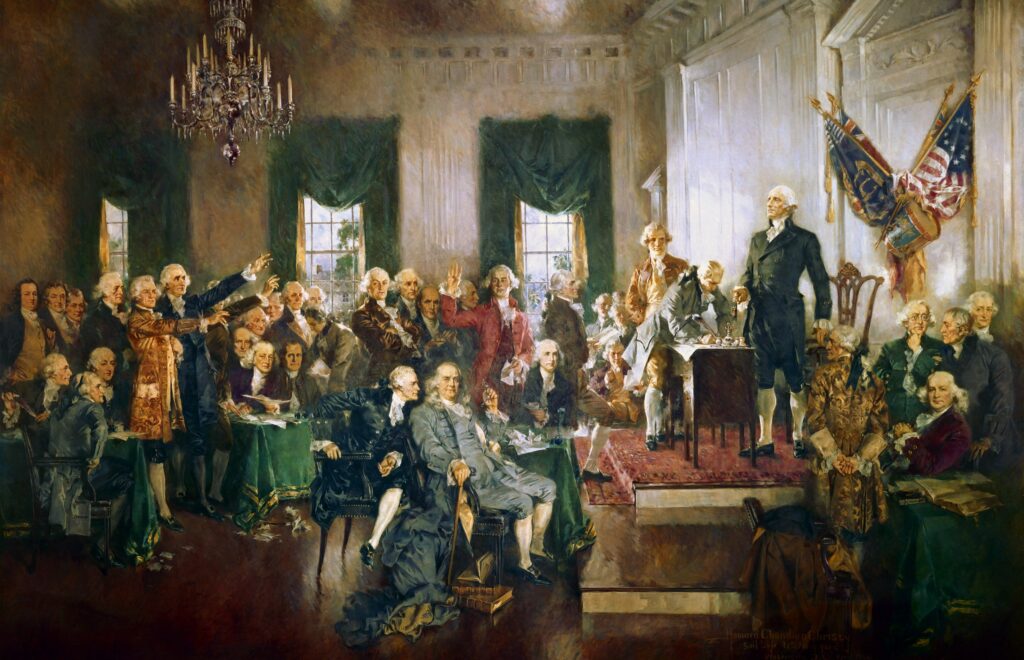
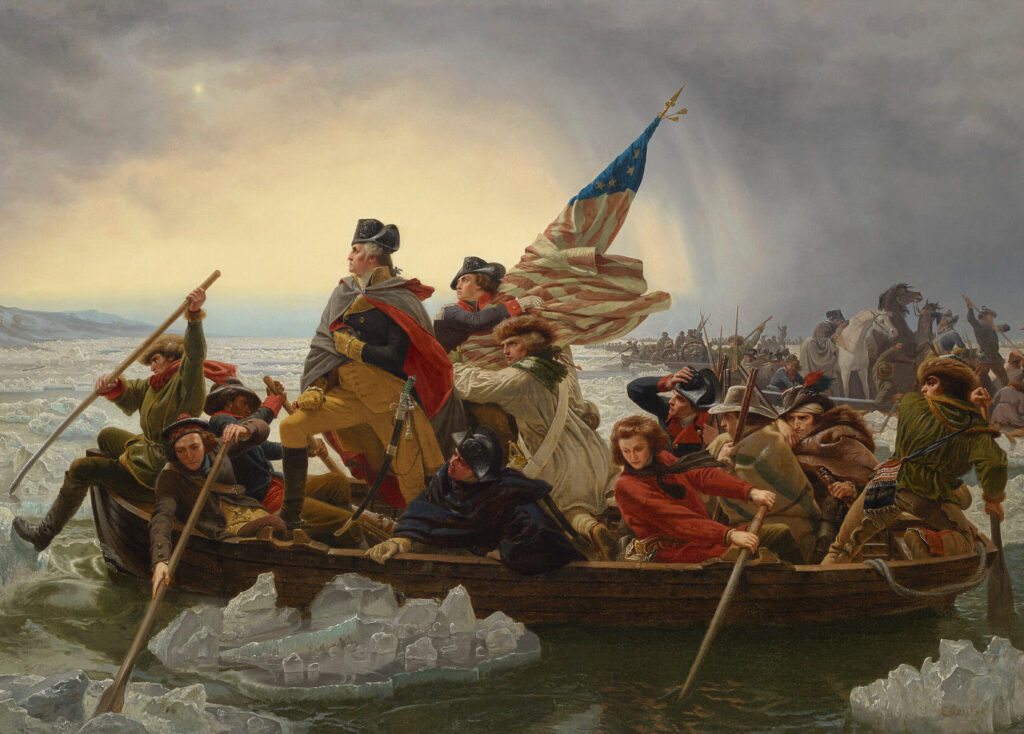
“I will be brave and persevere in difficult times.”
Courage is at the heart of what it means to be a LionHeart. Courage, bravery, valor, and fortitude all call us to be strong and to never give up. It is the spirited core in our chests that beckons us to strive toward what is Good, True, and Beautiful. The head is nothing without the chest, and the belly is unruly without the lion in the chest. Plato argues that the man represents the intellect, the lion represents the chest, and the many-headed beast represents the belly. The well-ordered soul is nothing without the LionHeart. Thankfully, great men and women have modeled courage for us, as Washington did for us in crossing the Delaware.
Emanuel Leutze (1851), Washington Crossing the Delaware
“I will exercise self-control, discretion, and temperance in all things.”
When it comes to moderation, there’s not many more reverberating stories throughout history beyond the boy who flew too close to the sun. Icarus embodies the lesson of self-restraint and what happens if you don’t. Moderation, or Temperance, is a cardinal virtue always at play in life and history. Whether it be with resources, passions, or choice, moderation beckons us at every turn to be wise, think ahead, and be careful.
Pieter Bruegel the Elder (1560), Landscape with the Fall of Icarus
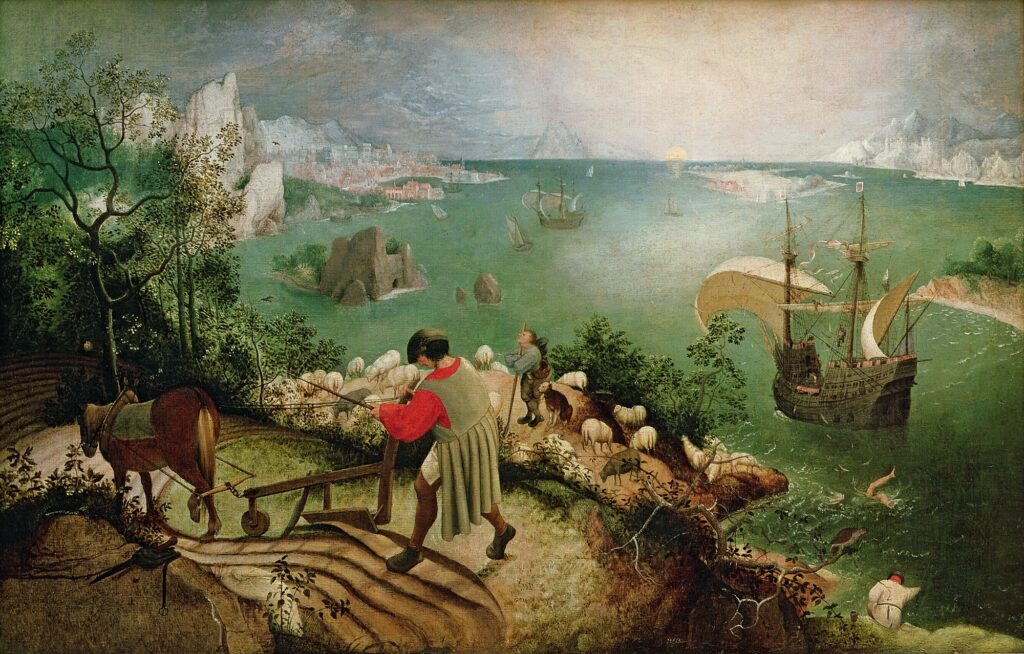
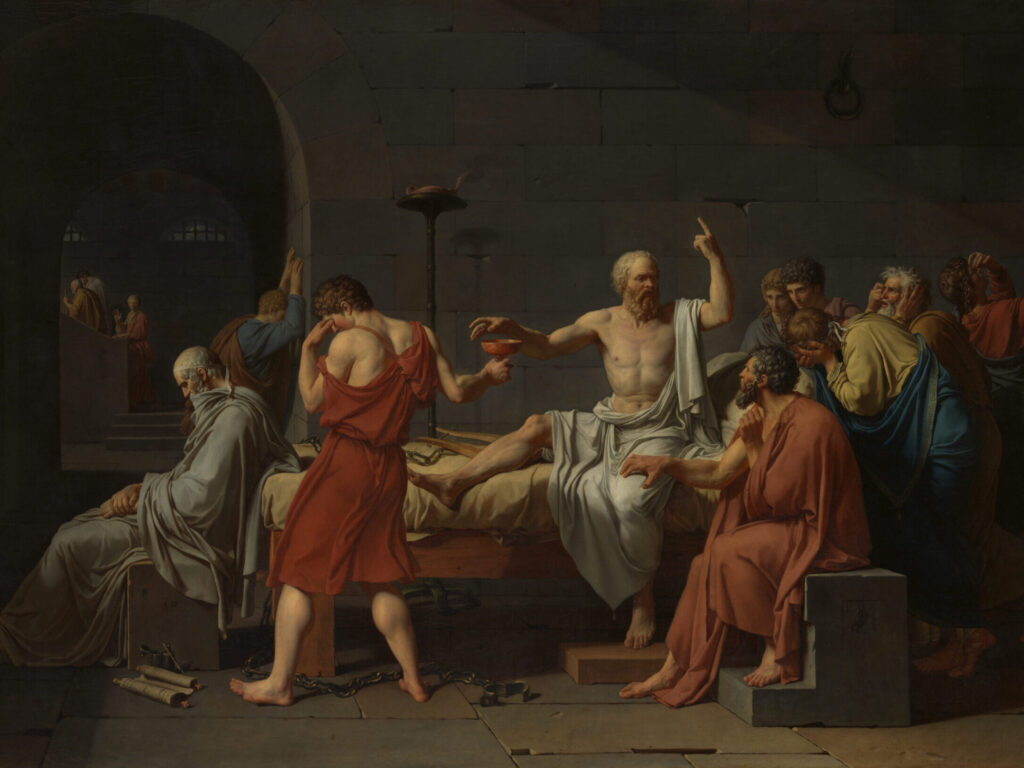
“I will obey rules, respect authority, and treat others fairly.”
Justice, per Socrates in the Republic, is, “minding one’s own business.” This applies to a well-ordered soul but also to a well-ordered society. An easy example of justice can be found embodied in the statue of Lady Justice: a pair of scales and a blindfold over her eyes represent equality and fairness, the sword represents power and punishment, and she stands on the book of the law and crushes the evil snake. There is a certain rationality to Justice, one that Dr. King argues is rooted in Natural Law. Here, Socrates submits to the law of Athens and drinks hemlock. Is this Just?
Jacques-Louis David (1787), The Death of Socrates
“I will seek those things which are good, true, and beautiful.”
Wisdom is based on the Greek word for Sophia, and calls our attention to the highest things in life. Philosophy, the Greek word for the love of wisdom, invokes a core tenant of our program. Wisdom, or as the ancients always refer to her as Lady Wisdom, always calls us away from foolishness to the Good, the True, and the Beautiful. It includes all subjects, not only as knowledge acquisition, but as knowledge growth, inquiry, and application. Wisdom seek universal understanding, as well as particular understanding, concerning itself with those things above and the things below.
Raphael (1509-1511), The School of Athens
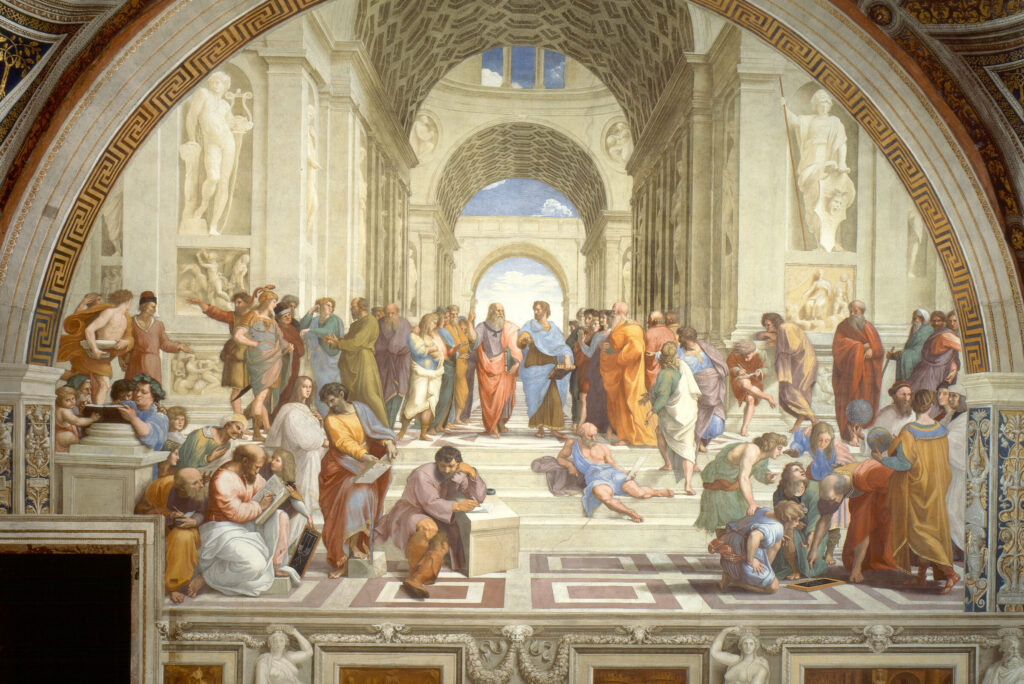
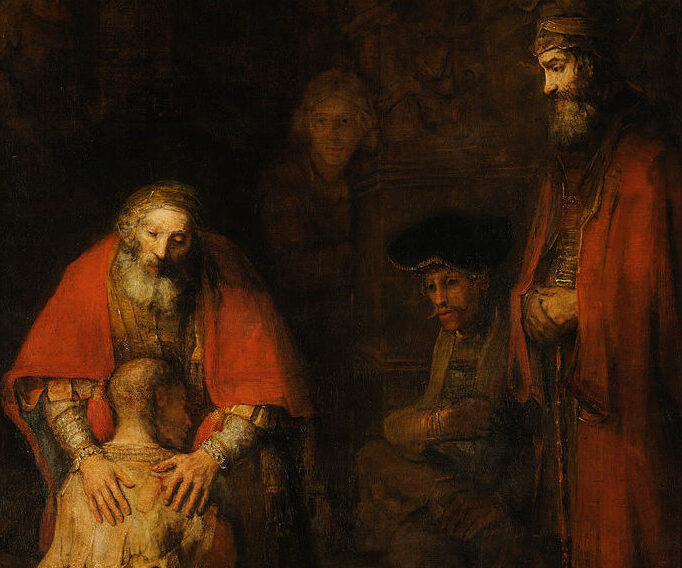
“I will not be prideful or arrogant in my words, actions, or habits.”
Jeremy Taylor, the “Shakespeare of Divines,” said this of humility, “Be like Moses, whose face shined brightly for others to see but did not make it a looking glass for himself.” In an age of showbusiness, humility is hard to come by. In Tocqueville’s words, we have stepped into a soft despotism, allowing man to exist “only in himself and for himself alone.” There is no remaining concept of the other person or our deeply human and important relationship to others and God. If you consider serving another, you will quickly realize other worlds beside yourself. Marked by modesty and respect, humility melts narcissism, hubris, and all other forms of pride.
Rembrandt (1661-1669), The Return of the Prodigal Son
“I will admire and learn with all my heart.”
Wonder is the central component to learning. If wonder is not found in our classrooms throughout the day, we are failing to do our job. Correlating to Beauty, wonder cultivates the love of learning. Wonder is embodied in the act of questioning, revealing the awe of beholding and encountering Truth. It is the discovery of beautiful and miraculous things, things like: photosynthesis, metamorphosis, harmony, and astronomy. Wonder invokes a sense of gratitude, waking us to the Good, True, and Beautiful.
Johannes Vermeer (1668), The Astronomer


“I will treat others with respect and seek friends who make me better.”
Friendship is one of the most important virtues in the classical and Western tradition. All the great men and women of old have spoken of, taught, and modeled friendship at the highest and lowest levels of society. At TCA, making and having good friends will be the bedrock of our school culture and community.
Winslow Homer (1872), Snap the Whip
“I will act with civility and serve others wherever possible.”
Civility, service, and responsibility are the hubs that hold society together. Committing to be kind to your neighbor, serving them at your own expense, and taking personal responsibility for your own sphere and those around you are fundamental to a successful and trusting community. As Aeneas is carrying his father with his son by his side to go out from Troy and found a new city, so we should exercise responsibility for the past, present, and future.
Federico Barocci (1598), Aeneas Fleeing from Troy


“I will have an attitude of thankfulness and say thank you to others.”
The arrival in the New World was one that would change the world forever. To have Liberty in a new land was the utmost hope and goal. The land was a good land, and they were grateful. Even in all the hardship, the inhabitants knew they were to pause and express gratitude to others and God. It is no wonder that Thanksgiving has become a national holiday and we are always beckoned to reflect in thanks to those around us. Take a moment to say thanks to those in your life and to be thankful.
Jennie Augusta Brownscombe (1925), Thanksgiving at Plymouth
Signup our newsletter to get update info, news and school activities
School Site: 9815 S. Sheridan, Tulsa, OK 74133
Office Hours: Mon-Fri, 7:30am-4pm